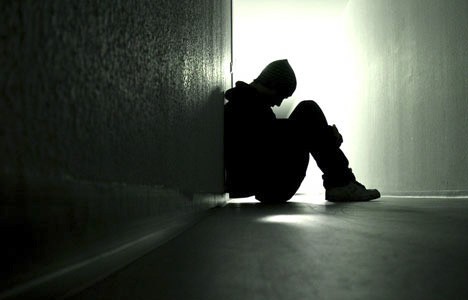Counseling Center preps for stress spike

Courtesy Photo / Google Images The holidays are the most stressful time of the year
Dec 13, 2010
When “the most wonderful time of the year” is coupled with a mounting workload, it can often transform the holiday season into one of stress.
While depression and anxiety levels increase in the weeks leading up to finals, those levels have been up all semester, said counselor Harriet Singleton. The Counseling Center is doing everything it can to de-stress students as they prepare for finals this week.
Relaxation and personal time are crucial in lessening the anxiety caused by finals, Singleton said.
“We are working with students on breathing techniques and relaxation,” she said. “Doing physical activity, leisure and study breaks, eating properly and spending time with friends are all very important.”
The Grand Valley State University Counseling Center offers a wide array of pamphlets on dealing with stressful or depressing issues in addition to personal development and study skills handouts.
The counselors also keep in touch with students who come to speak about depression or stress issues, including the fear of going home for the holidays after a long stretch at school.
“We keep track of students who have come to see us throughout the semester and provide them with devices like our wellness wheel,” Singleton said. “We also just had a workshop on preparing students for going home and managing their moods.”
Grand Valley State University’s Department of Public Safety also handles stressed out students.
DPS assistant director Capt. Brandon DeHaan said since the start of the semester DPS has responded to 12 suicide attempts or ideations – when an individual seriously considers suicide and has a plan. The majority of the calls occurred right before or during the week of midterms. DeHaan said student anxiety and depression tend to spike around exam periods.
He said typically a friend, parent or Housing staff member contacts DPS to conduct a well-being check in response to something the student in question has said or done, such as self-harming or voicing intent to harm themselves. When conducting a well-being check, DPS officers first speak with the individual – if the person is not an immediate threat to themselves or others – and try to evaluate the student’s physical, emotional and mental state.
“If they’ve identified a (suicide or self-harm) plan, Counseling will be called, and a counselor will speak to that person,” DeHaan said.
If the counselor deems it appropriate, the student will be transferred to the hospital for a psychiatric evaluation and further observation. If the officers and counselors on-scene conclude that the person is a threat to themselves or others around them, law enforcement also has the option of transporting the student for an involuntary evaluation.
If the student has made a threat to their life, such as cutting or ingesting medication, they will be transferred to the hospital first before undergoing an evaluation. A member of the Counseling Center who is on-call typically will arrive at the hospital later to help determine the next course of action for the student.
“Our intent is to help students and try to get them to a place where they can get some treatment,” DeHaan said. “If friends are not sure of what they should do, they should probably give us a call. It’s better to be safe.”
In GVSU’s history, four students and one ex-student have committed suicide on university property. The most recent incident occurred in 2005.
Students who experience anxiety, depression or thoughts of suicide during the daytime are advised to visit the Counseling Center inside the Student Services Building, where counselors are on-hand from 8 a.m. to 6 p.m. Monday through Thursday and from 8 a.m. to 5 p.m. on Fridays.
During the evening hours or in cases that require immediate medical or psychiatric attention, call DPS at 616-331-3255.

























